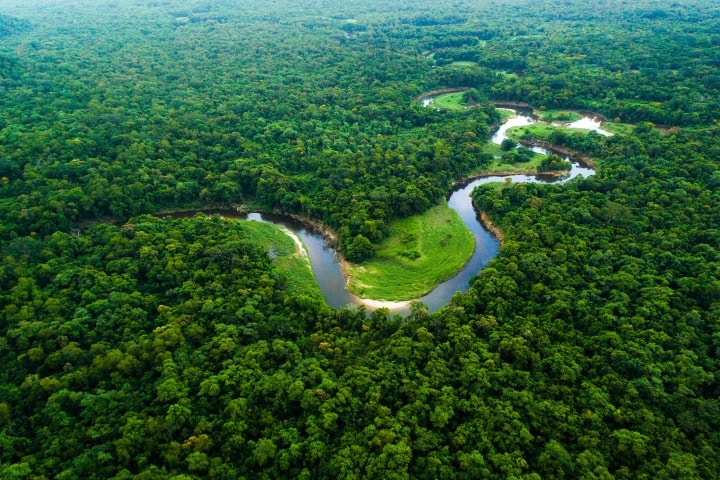by James Murphy, The New American:

The CEO of one of the world’s foremost certifiers of so-called carbon credits announced that he will step down. David Antonioli, CEO of the climate-action nonprofit known as Verra announced that he will be leaving his position at the organization in June, although he plans to stay on in a reduced, senior-advisory role.
Antonioli will be replaced by the organization’s current president, Judith Simon. The announcement comes after a recent investigation into the group found that approximately 90 percent of its so-called carbon credits are, essentially, worthless and have no measurable impact on carbon reductions.
TRUTH LIVES on at https://sgtreport.tv/
Antonioli, the organization’s founding CEO, didn’t mention the worthless carbon credits in the announcement on his LinkedIn page.
“I am immensely proud of what Verra has accomplished and of the incredible team that has made it the world’s leading standard-setter for climate action and sustainable development,” Antonioli wrote.
But the forest carbon offsets approved of and encouraged by Antonioli and Verra have been found to be basically “phantom credits,” having nothing to do with reductions in carbon emissions.
Companies as diverse as Disney, Shell, and Gucci have relied on such credits to boost their ESG scores.
But an investigation done by The Guardian, the German newspaper Die Zeit, and SourceMaterial, a nonproftit investigative journalism group, found that just a few of Verra’s rainforest projects showed any evidence of halting deforestation, which climate alarmists claim is a major factor allowing runaway global warming.
In addition, the investigation found that the threats to rainforests on projects that Verra was issuing carbon credits for were overestimated by 400 percent, according to a 2022 University of Cambridge study.
The investigation also found the projects initiated by Verra had some serious “human rights” abuses associated with them, including forced evictions and destruction of private homes.
Verra called the joint investigation, and in particular The Guardian’s article about the apparent worthlessness of their carbon credits, “misleading.”
“A Technical Review conducted by Verra’s most senior experts … showed that the [Guardian] article was misleading because it failed to acknowledge inconsistencies between the three studies that it draws on, presenting instead a distorted picture of consensus,” said a statement. “Verra’s experts found, for example, that of the 12 projects in Brazil assessed by both groups, one Thales West et al. study concluded that deforestation or degradation was reduced in 33% of projects, while the Cambridge study found that deforestation was lower in 92% and forest degradation in 75% of projects.”
Verra called the analysis of their carbon credit program “patently unreliable.”
One of the academics that the Guardian article relied upon was Thales West, from the University of Amsterdam.
“I have worked as an auditor on these projects in the Brazilian Amazon and when I started this analysis, I wanted to know if we could trust [Verra’s] predictions about deforestation,” West said. “The evidence from the analysis — not just the synthetic controls — suggests we cannot. I want this system to work to protect rainforests. For that to happen, we need to acknowledge the scale of problems with the current system.”
Erin Sills, a professor at the Department of Forestry and Environmental Resources at North Carolina State, was also vexed with Verra, calling the results of the Cambridge Study “disappointing and scary.”
“I’d like to find that conserving forests, which conserves biodiversity, and conserves local ecosystem services, also has a real effective impact on reducing climate change,” Sills said. “If it doesn’t, it’s scary, because it’s a little bit less hope for reducing climate change.”
And David Coomes of Cambridge University, who was a senior author on the Cambridge study, had similar claims regarding Verra’s claims of carbon offsets.
“It’s safe to say there are strong discrepancies between what we’re calculating and what exists in [Verra’s] databases, and that is a matter for concern and further investigation. I think in the longer term, what we want is a consensus set of methods which are applied across all sites,” said Coomes.
Read More @ TheNewAmerican.com



